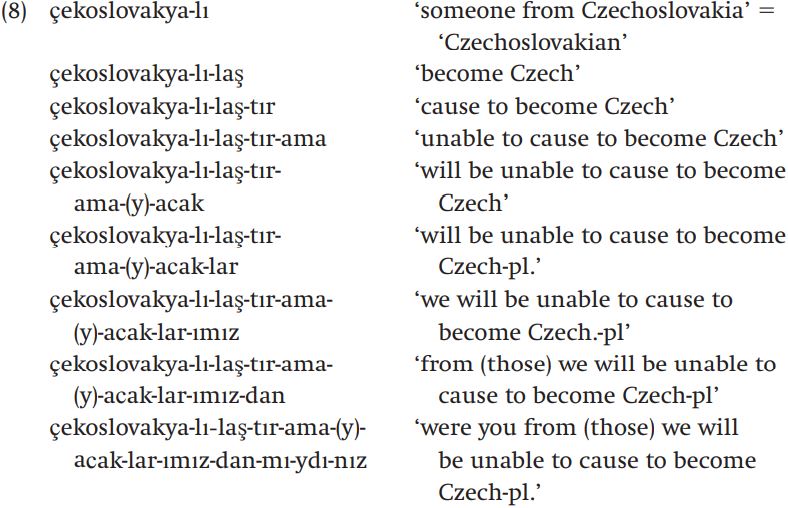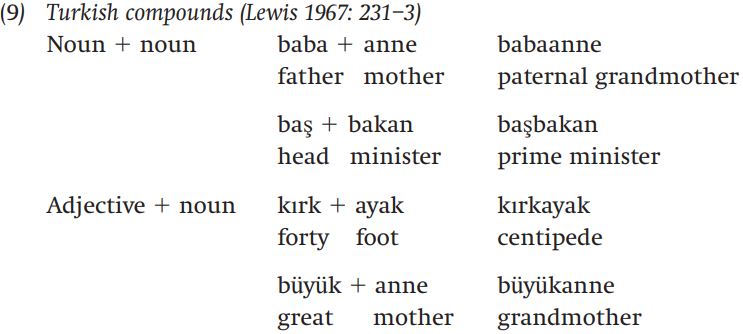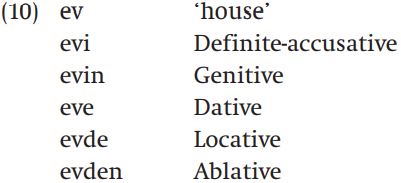x

هدف البحث
بحث في العناوين
بحث في المحتوى
بحث في اسماء الكتب
بحث في اسماء المؤلفين

اختر القسم
موافق


Grammar


Tenses


Present

Present Simple

Present Continuous

Present Perfect

Present Perfect Continuous


Past

Past Continuous

Past Perfect

Past Perfect Continuous

Past Simple


Future

Future Simple

Future Continuous

Future Perfect

Future Perfect Continuous

Passive and Active


Parts Of Speech


Nouns

Countable and uncountable nouns

Verbal nouns

Singular and Plural nouns

Proper nouns

Nouns gender

Nouns definition

Concrete nouns

Abstract nouns

Common nouns

Collective nouns

Definition Of Nouns


Verbs

Stative and dynamic verbs

Finite and nonfinite verbs

To be verbs

Transitive and intransitive verbs

Auxiliary verbs

Modal verbs

Regular and irregular verbs

Action verbs


Adverbs

Relative adverbs

Interrogative adverbs

Adverbs of time

Adverbs of place

Adverbs of reason

Adverbs of quantity

Adverbs of manner

Adverbs of frequency

Adverbs of affirmation


Adjectives

Quantitative adjective

Proper adjective

Possessive adjective

Numeral adjective

Interrogative adjective

Distributive adjective

Descriptive adjective

Demonstrative adjective


Pronouns

Subject pronoun

Relative pronoun

Reflexive pronoun

Reciprocal pronoun

Possessive pronoun

Personal pronoun

Interrogative pronoun

Indefinite pronoun

Emphatic pronoun

Distributive pronoun

Demonstrative pronoun


Pre Position


Preposition by function

Time preposition

Reason preposition

Possession preposition

Place preposition

Phrases preposition

Origin preposition

Measure preposition

Direction preposition

Contrast preposition

Agent preposition


Preposition by construction

Simple preposition

Phrase preposition

Double preposition

Compound preposition


Conjunctions

Subordinating conjunction

Correlative conjunction

Coordinating conjunction

Conjunctive adverbs


Interjections

Express calling interjection


Grammar Rules

Preference

Requests and offers

wishes

Be used to

Some and any

Could have done

Describing people

Giving advices

Possession

Comparative and superlative

Giving Reason

Making Suggestions

Apologizing

Forming questions

Since and for

Directions

Obligation

Adverbials

invitation

Articles

Imaginary condition

Zero conditional

First conditional

Second conditional

Third conditional

Reported speech


Linguistics

Phonetics

Phonology


Semantics


Pragmatics

Linguistics fields

Syntax

Morphology

Semantics

pragmatics

History

Writing

Grammar


literature


Reading Comprehension

Elementary

Intermediate

Advanced
Turkish (Altaic)
المؤلف:
Rochelle Lieber
المصدر:
Introducing Morphology
الجزء والصفحة:
120-7
22-1-2022
672
Imagine one word that means ‘were you one of those whom we are not going to be able to turn into Czechoslovakians?’ This may seem highly unlikely, but it’s possible in Turkish: the word is çekoslovakyalılaştıramayac aklarımızdanmıydınız, and it’s possible because Turkish is a language that delights in suffixation:

Let’s look in detail at the pieces that make up this word. Note first that Turkish has a phonological rule called ‘vowel harmony’ which makes the vowels of suffixes agree with the preceding vowels in the base in backness and sometimes roundness . The first suffix that we encounter after the base is a suffix -li, which attaches to nouns to make personal nouns. With vowel harmony, the suffix -li will show up as -lu after the front round vowel ö:

The next suffix -laş forms intransitive verbs from adjectives. Again, taking vowel harmony into account, the suffix can appear as -leş if it is preceded by a base with front vowels, and -laş if preceded by back vowels:

Next we have the suffix -dir, which forms causative verbs from intransitive verbs. Note that the [d] in the suffix shows up as the corresponding voiceless stop [t] if the preceding consonant is voiceless:

The following suffix is called the ‘impotential’, which essentially means ‘not able’:

Next is the future suffix -ecek:

Then the plural suffix -ler:

And then, we get the first person possessive suffix -ımız, the ablative marker -dan (which essentially means ‘from’), the question marker -mı, the locative marker -dı (which means ‘at’), and the second person plural verb marker -nız. As you can see, each of these suffixes can occur in simpler words, but they can all be used together to form the enormously long and complex word we started with. If we put it all back together again, we get something like (8):

Although the predominant way of forming words in Turkish is through suffixation, it also has a process of compounding, as the examples in (9) show:

As the examples in (9) show, Turkish compounds are right-headed.
We can see from our lengthy discussion of the example in (1) that Turkish uses suffixation for both derivation and inflection. In addition to marking number on nouns, Turkish also marks case, as the paradigm in (10) shows:

Turkish verbs are inflected for person and number, and can appear in a number of different tenses, including present, past, future, and conditional. There are affixes to make verbs negative or interrogative, and verbs can mark other distinctions as well. All of these inflections are suffixes; verb forms can be quite long and complex.
What this brief description of Turkish morphology shows is that a language can have wildly abundant morphology, and yet use no more than a couple of tools from our universal toolkit. Turkish is an overwhelmingly, exuberantly suffixing language, using suffixes for both lexeme formation and inflection, but it has no processes of prefixation to speak of. What few prefixes can be found in Turkish are always on borrowed words, and essentially are not part of the native system of word formation of Turkish.